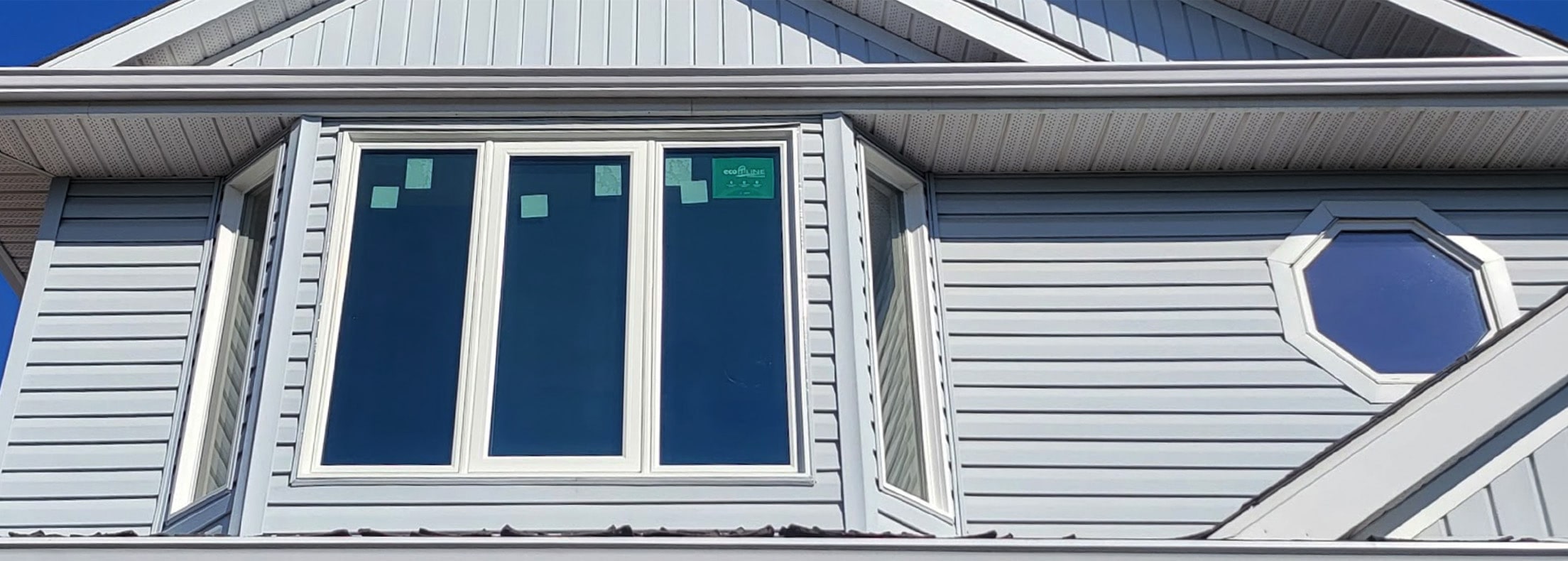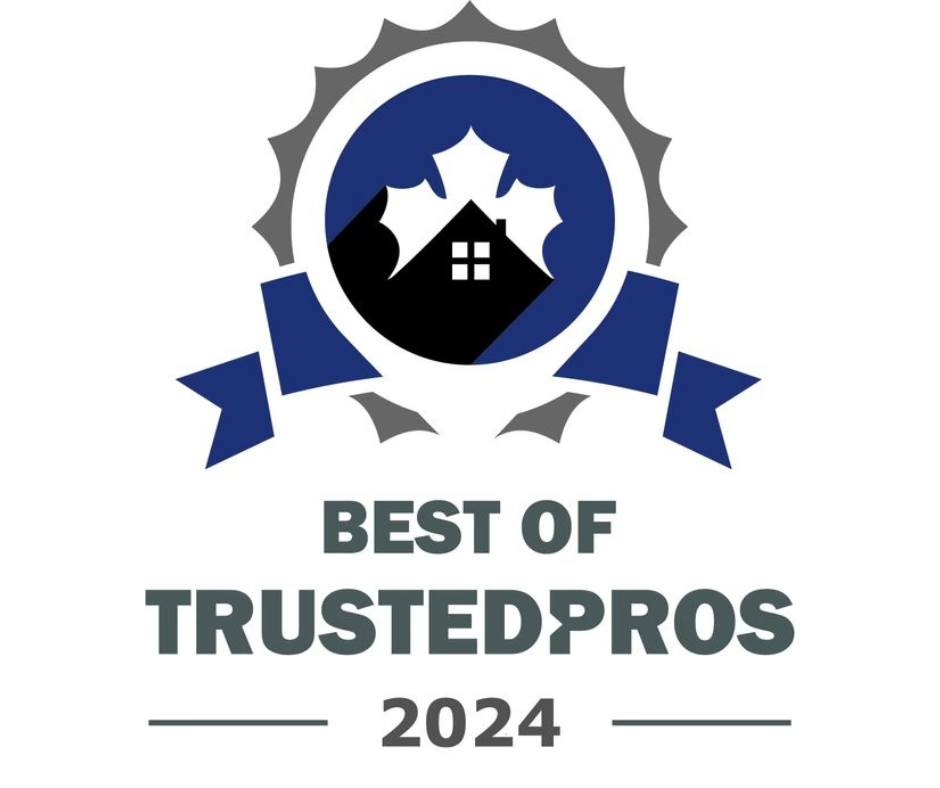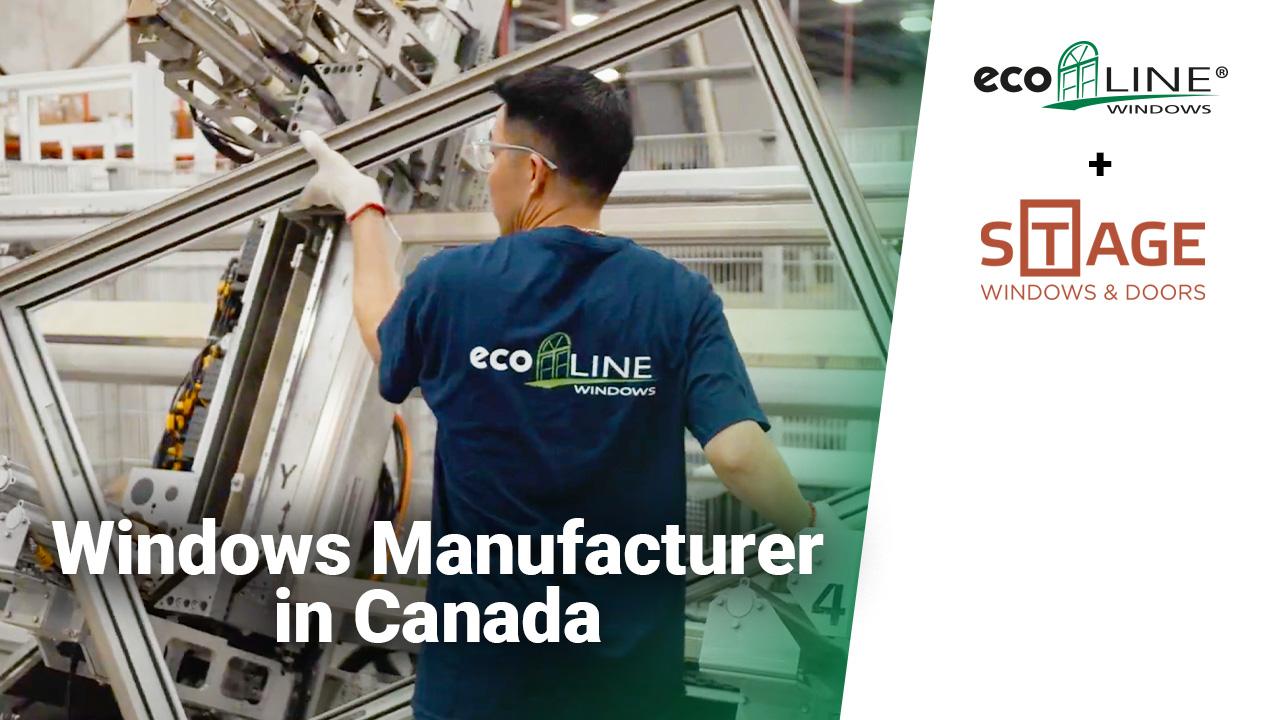

Local Window Company: What Does It Really Mean?
Jan 13, 2025
9 min read
2092
Choosing the right windows for your home extends beyond mere aesthetics or functionality; it’s a choice that reflects your values, your commitment to quality, and your understanding of the profound impact that such a decision can have on your living environment and the local economy.
Buying new windows from local window companies is not just about supporting local businesses; it’s about investing in products manufactured with a deep understanding of the Canadian regional climate and crafted to meet the highest energy efficiency and durability standards.
Today, we will discuss how to pick a local window replacement company, unravelling the layers of what it truly means to make such a choice—highlighting the manufacturing process, the significance of local craftsmanship, and the unparalleled benefits that come with choosing windows that are not just made in Canada, but made for Canadians.
The Manufacturing Process
To understand what local windows company really means, let’s first dive deeper into the window manufacturing process and the components that may derive from areas outside Canada.
- Cut vinyl or PVC sections to size needed for frame—many window manufacturers purchase their vinyl or PVC from China and the United States. Ecoline buys them locally in Canada.
- Attach hardware to frame for assembly.
- Drain holes are drilled in frame to release excess water.
- Corners melted together to seal frame (not welded.)
- Spacers for the screen are installed and caulked for added insulation.
- Inner coverings are hammered into the frame to stabilize and seal it.
- Screen installed with a spline pressed into a channel to hold it in place.
- Sashes (frame inside the frame) are cut to size and seals are added.
- Hardware installed to allow the sashes to move properly inside the frame and are locked in place.
- Double-hung windows have two sashes that are each fitted with glass.
- Glass is secured into the sash and sealed (glass can have LoE coatings and can be double- or triple-pane and filled with Argon or Krypton gas for added energy efficiency.)—most companies buy their sealed glass units from big glass manufacturers that are based out of the United States. Ecoline assembles their own sealed glass units in Canada.
- Sashes are installed into the frame (double-hung windows slide up and down and also tilt for cleaning.)
- Locking/operable hardware is secured into place—many companies source their hardware from Turkey or China. The best quality hardware is based out of the USA and Ecoline buys the best quality parts from the leading USA hardware manufacturers.
“Product of Canada” and “Made in Canada” Designations
Guidelines have been established by the Competition Bureau Canada to assist consumers in determining whether a “Product of Canada” or “Made in Canada” declaration is accurate or meant to mislead a purchaser into buying their products.
In order to qualify as a “Product of Canada” it must meet these two conditions:
- the last substantial transformation of the product must have occurred in Canada; and
- at least 98-percent of the costs of producing or manufacturing the product must have occurred in Canada.
In order to qualify as “Made in Canada,” the criteria is a little less stringent:
- the last substantial transformation of the product must have occurred in Canada; and
- at least 51-percent of the costs of producing or manufacturing the product must have occurred in Canada; and
- an appropriate qualifying statement can include more specific details about the manufacturing origin, such as “Made in Canada with imported parts.”
Why It Matters
Claiming to be a “Local Window Company” comes with many built-in promises that you should expect from window companies specialising in energy-efficient windows. When the majority of window components are from Canada, you should trust that they are of exceptional quality, built to last, and meet the high standards established by the Canadian government. Products made outside of Canada may not adhere to the same regulations and may fail prematurely or have a limited lifespan.
Window prices should be competitive, not cheap. Be wary of prices that are “too good to be true.” Inferior components may be used to lure unsuspecting buyers with low prices. While Canadian-built windows may not be the least expensive, they should be comparable to other products with the same performance standards.
Local window companies will always offer high standard (Energy Star and NAFS-compliant) efficient windows that are specifically rated for your particular climate zone. By purchasing windows manufactured in Canada, you’ll obtain products that are well insulated to provide the optimum energy efficiency as administered by Natural Resources Canada for improved comfort and utility cost savings.
Dealing with a local window company provides:
- Peace of mind by offering exceptional product knowledge, options and features.
- Installation services will be provided by company technicians who specialize in full-frame and retrofit installations, not by inexperienced subcontractors.
- You should be able to obtain a proof of record with excellent feedback from people in your area who received products and services from the company.
- Financing options with no pressure to make a decision.
- Local support team and a reasonable warranty for parts and labour.
Local Window Companies vs National Window Companies
| Local Window Companies | National Window Companies |
Pros: |
Pros: |
✅ Personalised customer service and care |
✅ Broad product range catering to diverse needs |
✅ Customisation options tailored to local needs and preferences |
✅ Potentially lower prices due to economies of scale |
✅ Shorter supply chains, often resulting in faster delivery times |
✅ Strong brand recognition |
✅ Products often designed specifically for the local climate and conditions |
✅ Access to advanced technology and innovation |
Cons: |
Cons: |
❌May have a smaller product selection compared to national brands |
❌ Customer service may feel less personal due to the size of the company |
❌ Prices can be higher |
❌ Limited Customisation |
Cost comparison: local vs national window installers
When considering the cost of window installation, the choice between local and national window installers significantly shapes the overall investment.
- Local installers often provide a personalised touch, with pricing that reflects the quality of craftsmanship, support for the local economy, and potentially lower transportation costs.
- On the other hand, national installers might offer competitive pricing due to their larger scale of operations and economies of scale, but this can sometimes come at the expense of a customized service experience.
The true cost comparison doesn’t just boil down to the initial price tag; it also involves considering the value of customer service, the quality of materials used, and the installation efficiency.
We encourage you to use our window replacement cost estimator to navigate these financial waters and make an informed decision tailored to your specific needs and budget.
How to Find a Reputable Local Window Company: Do Your Research
Now that you understand what it means to be a “Local Window Company” selling products that are a “Product of Canada” or “Made in Canada” you should research the company before you contract with them to do your window replacement project.
- Questions to ask local window replacement companies should cover where they get their vinyl or PVC material, do they buy their glass from a big glass manufacturer or make their own? Do they use quality hardware or is it imported from Turkey or China?
- Be wary of companies that try to force you into making a decision or request a substantial deposit before the work is started. Cheap prices may mean inferior products with little or no recourse if the product fails.
- Ask for copies of warranties, phone numbers for customer service, and always request a complete quote for work to be performed with assurance of no additional or hidden fees.
- Check Google, HomeStars and BBB reviews online before signing a contract, read what their past clients say about the overall experience.
1750 Coast Meridian Rd #102,
Port Coquitlam, BC V3C 6R8
100, 17866 106A Avenue,
Edmonton, AB, Canada,
T5S 1V3
3307 Dunmore Rd SE #12,
Medicine Hat, AB,
Canada, T1B 3R2
2081 Merivale Rd #201, Ottawa, ON, Canada, K2G 1G9
by appointment only
109 Ilsley Ave Unit #3, Dartmouth,
NS, Canada, B3B 1S8









Recent Reviews
By committing to using a local window company to do your home improvement window replacement you’re supporting your local community and protecting your investment for years to come.
F.A.Q
What to look for when choosing a local window installer?
Prioritise installers with a strong local reputation, proven track record of quality installations, transparent pricing, and excellent customer service. Ensure they offer warranties and use high-quality, energy-efficient materials suited to your climate.
What are the best local window installers?
The best local window installers combine expertise, customer satisfaction, and product quality. Look for companies with positive reviews, industry certifications, and a commitment to environmental sustainability. Ecoline is a leading window replacement company, offering a 25-year warranty, direct price from the manufacturer and best-performing replacement windows.
Where are Ecoline windows are manufactured?
Ecoline Windows replacement windows and doors are manufactured in Ontario, Canada.
Recommended Articles
Matan Korin
Vice President of Sales at Ecoline Windows.
17 publications
Contact with Matan Korin via: